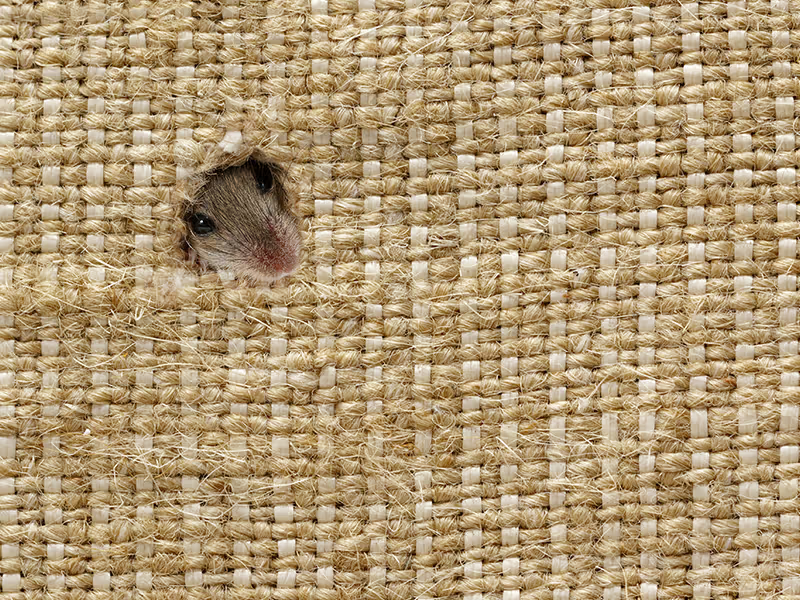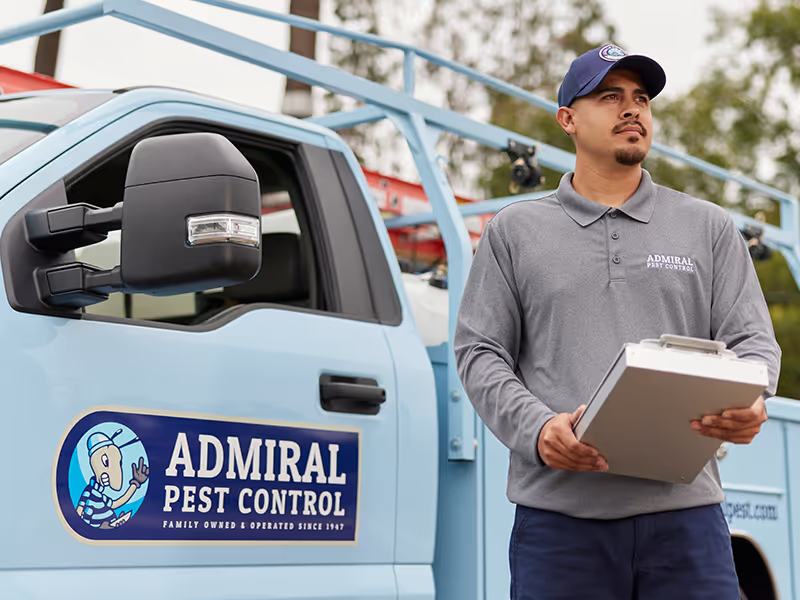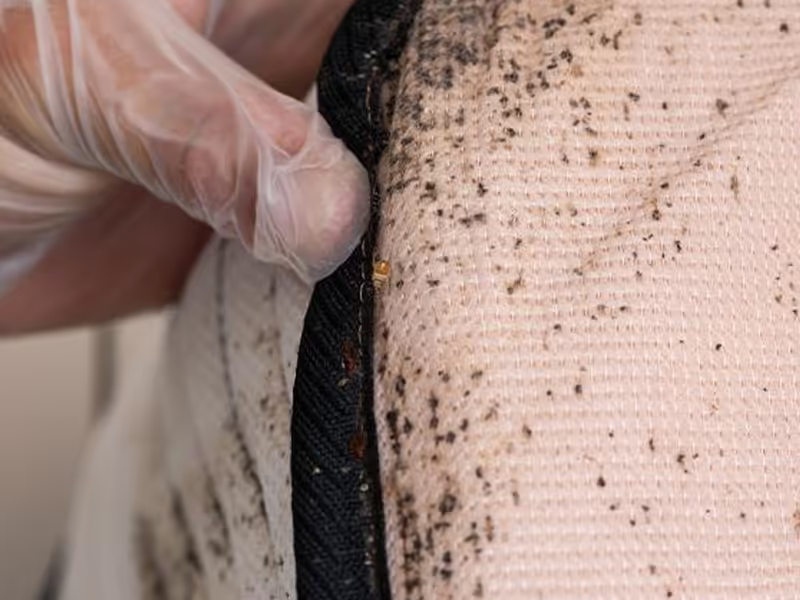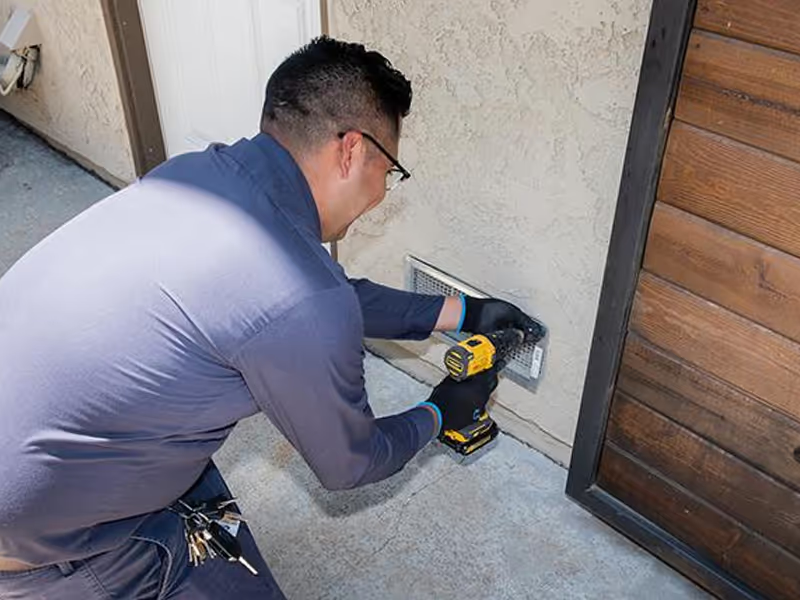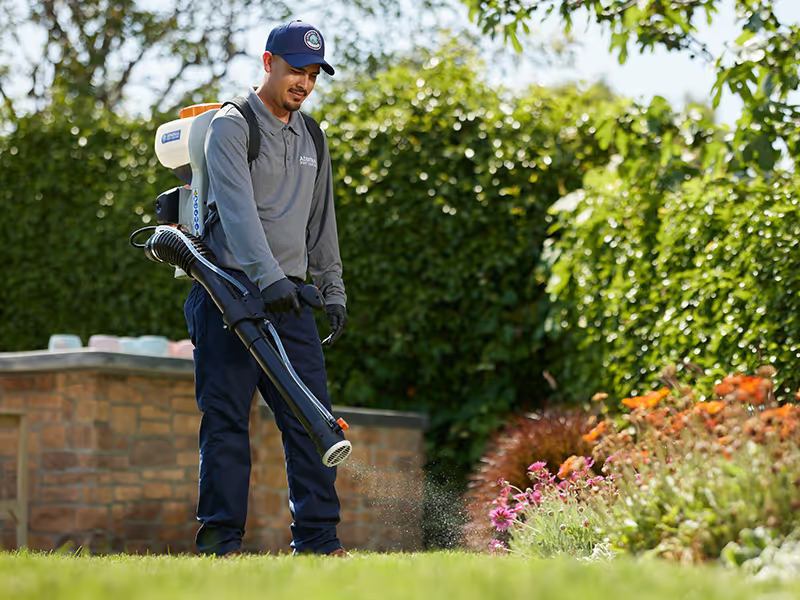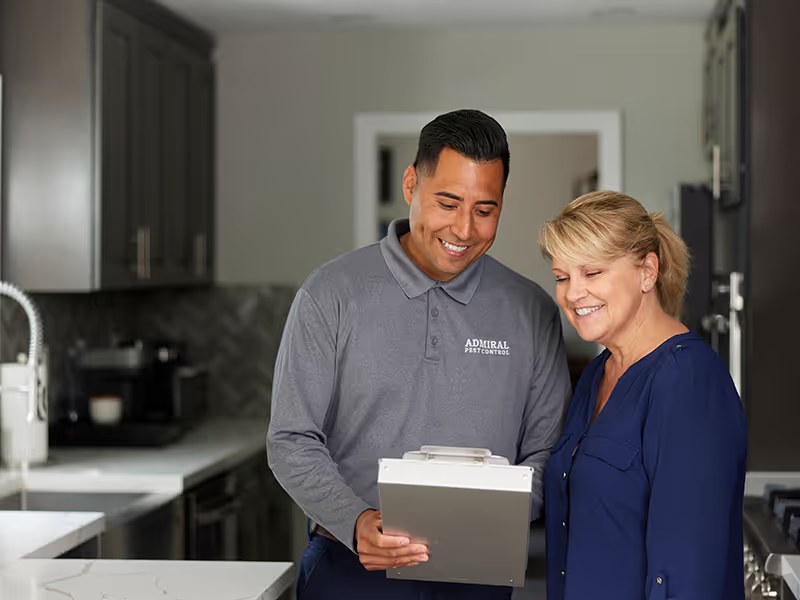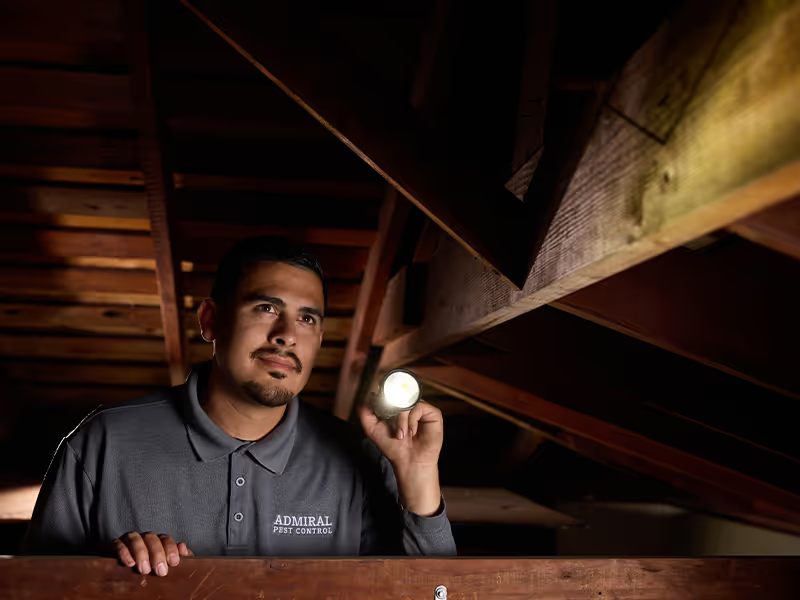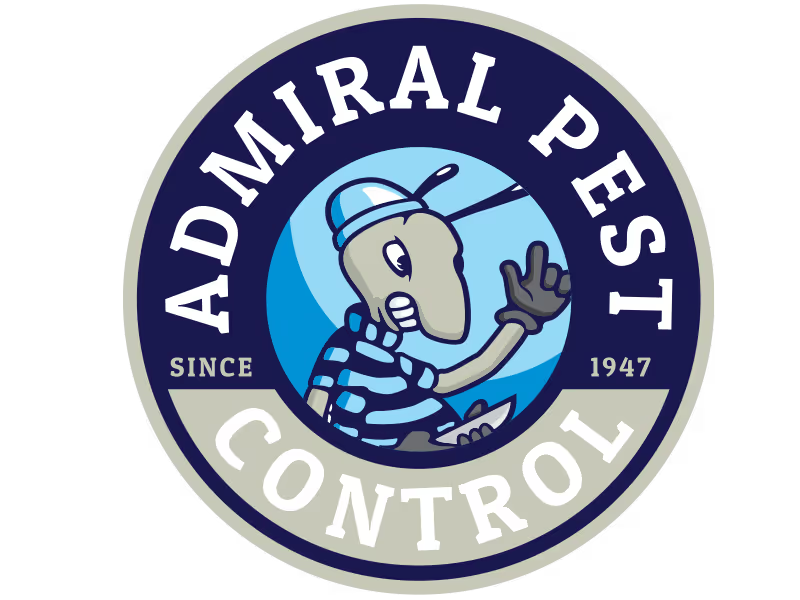The Common House Mouse
There are many species of mice around the world but none as common as the house mouse. You can identify this small rodent by its round two and a half to three and three-quarter-inch long dusty grey body, cream-colored belly, pointy snout, and large ears. When inside homes, house mice will do their best to stay out of sight. They typically chew holes through walls and use the voids throughout a house as a shelter. House mice will often tear up and use fabrics, paper, and insulation to build their nests. By both ripping up materials and chewing on everything, mice do a considerable amount of damage to homes. There have even been some incidents where mice have chewed through electrical wires and started fires.
One of the biggest problems associated with house mice is how rapidly they reproduce. A single female house mouse can have up to ten litters a year, each consisting of three to fourteen young. That said, it only takes a small family of mice under a month to turn into a large problem within a home. Dangers Of Mice
Mice are more than just destructive; they are also incredibly dangerous. The spread of various diseases that they pick up and carry is the biggest danger mice pose. Here are a few of the most common diseases mice might bring into your Orange County home.
- Hantavirus
- Lassa Fever
- Leptospirosis
- Plague
- Salmonellosis
- Rat-Bite Fever
These diseases are spread through the fecal matter and urine of mice, most often found in the backs of cabinets, cupboards, pantries, and near floorboards. When cleaning up after a mouse infestation, make sure to use the proper safety gear to avoid direct contact with their leavings.
Why Mice Are So Difficult To Get Rid Of
When it comes to avoiding danger, mice are one of the best. If you didn’t know, mice are known as incredibly smart creatures. It is not uncommon for pest mice inside homes to steal bait from active traps without getting caught. Mice are also prolific breeders. With enough mice in your home reproducing regularly, you could catch five to ten mice a week and never get them all. Finally, mice are hard to access. Think about it. Your home has voids not meant to be easily reached by humans. Mice use these voids to hide from homeowners, making them much more difficult to find and remove.
The Best Way To Handle Mouse Infestation
If you suspect your home is up against a mouse infestation, there is only one reliable solution that will quickly get them out. At Admiral Pest Control, we pride ourselves on our effective and reliable rodent control measures. It doesn’t matter if your home has two mice or hundreds; we are confident we can swiftly get them out.
Call us today to find out more about how we treat rodents, or to schedule an inspection for your Orange County home.

